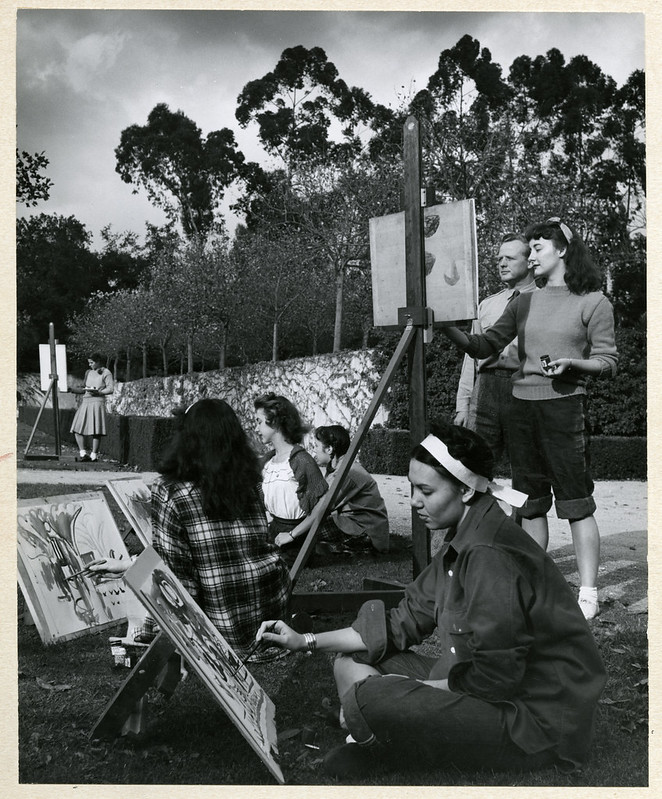
Photograph by Max Yavno taken at Scripps College, c. 1945–50
By Emily Glory Peters
Renowned author and art critic Suzanne Ely Muchnic ’62 describes her first encounter with Scripps College as “love at first sight.” An art major, Muchnic was inspired by the scenic campus, her engaged and energetic peers, and the mind-opening discussions she held with professors as she experienced the art scene in Los Angeles. What that experience lacked, Muchnic says, was shared knowledge of how Scripps College came to be—something she’s now changing as the College approaches its centennial.
“The idea of writing a history of Scripps College had been in the back of my mind for years,” says Muchnic, who after graduating from Scripps and Claremont Graduate University built an award-winning career as an art writer for the Los Angeles Times. Her experiences during that time deepened her interest in institutional history, and after years of other members of the Scripps community encouraging her to write about Scripps, Muchnic agreed to spearhead the project. The last two or three years have allowed her to cover more ground, she says, with the recent pandemic providing an especially big push to ramp up her writing.
“I’m about halfway through the chronology. Given the goal to have the book published before the centennial in 2026, my plan is to make this a 100-year history, including the early years of how the College got up and running,” she says. “My vision is a book that’s written in a lively, beautiful, informative way—a balance between being a fun read with plenty of facts.”
Including a Broad Scope of Viewpoints in the History Project
Muchnic adds that her research has illuminated some fascinating snippets of Scripps’ past, from stories of the inspiring women leaders who made up half of the College’s inaugural Board of Trustees to the campus climate during World War II. As an alumna, Muchnic has also been able to bring intimate details of College life during the rising civil rights and women’s movements to the project. And though the book is written in her voice, she notes that her desire is to include a broad representation of experiences from the Scripps community. To that end, Scripps has created a History Project Form for alums to share why they chose Scripps and what they gleaned from their experience.
While the project will provide Scripps graduates an opportunity to reminisce and reflect, Muchnic emphasizes that her intent for the book is also to inform and inspire future Scripps students so that, unlike their peers before them, they have a more complete understanding of the College’s legacy and their part in it.
“The ultimate story of Scripps, with all of its bumps along the way, is a success story—but truthfully, it was conceived as a great experiment at the time,” says Muchnic. “For future students, it’s important they know and are able to appreciate the history, the effort, and the women powerhouses behind making that experiment a reality.”
As we approach our centennial, Scripps College invites our alum community to start the celebration early by contributing their experiences for consideration in this landmark history project. To participate, please submit the form here.
Interested in learning more? Check out our latest giving and impact news here.

